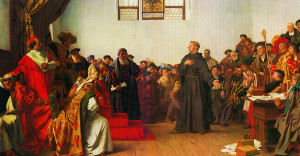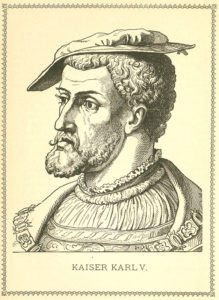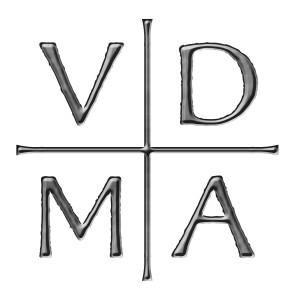by Dr. Jack Kilcrease
 The imperial Diet of Worms of 1521 was in many respects the culmination of the first phase of the Luther’s Reformation. In 1517, Luther’s protest had begun with his rejections of certain aspects of the medieval doctrine of penance and indulgences in the 95 Theses. As opposition increased, and as he studied the Scriptures in their original languages, Luther’s departures from late medieval theology grew ever more significant.
The imperial Diet of Worms of 1521 was in many respects the culmination of the first phase of the Luther’s Reformation. In 1517, Luther’s protest had begun with his rejections of certain aspects of the medieval doctrine of penance and indulgences in the 95 Theses. As opposition increased, and as he studied the Scriptures in their original languages, Luther’s departures from late medieval theology grew ever more significant.
The increasing gap between Luther and the papacy on key questions regarding the Christian faith eventually culminated in a definitive rupture when in late 1518 or 1519 Luther came to his mature understanding of the Gospel. By early 1520, with the publication of his three Reformation treatises (Freedom of a Christian, On the Babylonian Captivity of the Church, Letter to the Christian Nobility of the German Nation), the implications of the doctrine of justification by grace through faith had been fully digested in Luther’s thought.

By June 1520, the Vatican’s patience had run thin. Pope Leo X published the bull Exsurge Domine (“Rise up, O Lord!”), which outline forty-one errors of Luther. The Reformer was warned unequivocally that if he did not publicly renounce these errors and submit himself to the authority of the Roman Church that he would be excommunicated. For those living in the sixteenth century, excommunication was far more serious than to simply being shunned by the institutional Church. Excommunication more often than not carried with it the penalty of torture and death at the hands of the civil authorities.
Instead of submitting to the pope’s bull, Luther publicly burned it, along with a copy of the Code of Canon Law. He told his followers (who had gathered to observe this event) that in condemning his teaching the pope had condemned the Gospel itself. In this, the pontiff had revealed himself to in fact be the occupant office of the Anti-Christ predicted by the New Testament. Luther’s defiance resulted in his official excommunication on January 3rd, 1521.

Due to his popular support and his unwillingness to recant his views, Luther represented a serious threat to the political and religious stability of the Holy Roman Empire. Therefore, the newly elected emperor, Charles V, summoned Luther to the imperial Diet that was to be held at the German city of Worms. For those unfamiliar with the term, a “diet” was a meeting of the most significant political authorities in the Holy Roman Empire for the purpose of discussing and resolving key issues facing the realm.
Although the Diet commenced on January 23rd, 1521, Luther did not arrive until April 16th. Prior to his agreeing to appear at the Diet, Luther’s duke, Elector Fredrick the Wise, sought and gained for Luther a promise of safe conduct. The granting of safe conduct meant that Luther could not be seized and put to death. Indeed, even with the promise of safe conduct Luther was extremely trepidatious about appearing before the Diet. Roughly one hundred years earlier, Jan Hus, the Czech proto-reformer, had been promised safe conduct at the Council of Constance (1415) by the Emperor Sigismund. The promise had not been honored and Hus was seized and burned as a heretic along with his companion Jerome of Prague. Nevertheless, in spite of his fears, Luther obeyed the summons.
 On April 17th, Luther was called before the Diet for questioning. Johann Eck, a papal theologian (not to be confused with Luther’s opponent of the same name at the Leipzig Debate of 1518), asked Luther if he was willing to renounce his errors and the works that he had published them in. Dr. Jeromee Schurff, a professor of canon law and Luther’s advocate, asked that the titles of his writings for which he was accused of heresy be read aloud. Of Luther’s works, twenty-five titles were read off. After hearing this, Luther affirmed that they were indeed his writings. Regarding the question of whether or not he would renounce the errors he was accused of, the Reformer answered that he would need a day to in order to consider the matter and give a full answer. His request was granted.
On April 17th, Luther was called before the Diet for questioning. Johann Eck, a papal theologian (not to be confused with Luther’s opponent of the same name at the Leipzig Debate of 1518), asked Luther if he was willing to renounce his errors and the works that he had published them in. Dr. Jeromee Schurff, a professor of canon law and Luther’s advocate, asked that the titles of his writings for which he was accused of heresy be read aloud. Of Luther’s works, twenty-five titles were read off. After hearing this, Luther affirmed that they were indeed his writings. Regarding the question of whether or not he would renounce the errors he was accused of, the Reformer answered that he would need a day to in order to consider the matter and give a full answer. His request was granted.
On April 18th, Luther reappeared before the Diet. He reported that before giving his answer that he had prayed for long hours and had also consulted his friends and other counselors of high esteem. In giving his response to the question of recantation, the Reformer noted that although all these so-called errant writings were his, they were not all of the same kind. First, there were writings of a devotional nature, many which had been well received even by his theological opponents. There would be no reason to renounce these writings. Secondly, there were writing where he had attacked specific ecclesiastical abuses. Luther noted that if he recanted these writings he would do nothing but encourage error and tyranny. Thirdly, there were a number of writings that he had directed at against specific individuals. There, Luther admitted that his polemics were often very harsh and for this he was sorry. Nevertheless, he stood by the substance of what he had written and therefore could not recant them either.
 In summation, Luther stated that his conscience was captive to God’s Word. Luther noted that it was impossible to rely on anything other than the Bible as an ultimate source of authority because the Roman Catholic Church had often contradicted itself in its official pronouncements. Indeed, unless Eck or the other papal theologians could prove to him through appealing to the Bible or sound reason that he was wrong, he would stand by everything that that he had said. According to some traditions, Luther added at the end: “Here I stand.” Nevertheless, whether he genuinely spoke these words cannot be verified with certainty.
In summation, Luther stated that his conscience was captive to God’s Word. Luther noted that it was impossible to rely on anything other than the Bible as an ultimate source of authority because the Roman Catholic Church had often contradicted itself in its official pronouncements. Indeed, unless Eck or the other papal theologians could prove to him through appealing to the Bible or sound reason that he was wrong, he would stand by everything that that he had said. According to some traditions, Luther added at the end: “Here I stand.” Nevertheless, whether he genuinely spoke these words cannot be verified with certainty.
Eck responded that all heretics appeal to Scripture and therefore it was necessary to rely on the institutional Church’s interpretation to gain clarity regarding the content of the faith. For this reason, argued Eck, by pitting his own interpretation against the teaching of the institutional Church, Luther clearly proved himself to be a heretic and therefore should be condemned.
As a result of Luther’s failure to recant, private conferences among the various imperial authorities immediately broke out. Since the emperor insisted on not repeating the sin of Sigismund against Hus, it was impossible to seize and execute the Reformer on the spot. This allowed Luther time to flee back to Wittenberg. In the meantime, the papacy officially pronounced Luther a heretic and made it a crime for anyone to possess his writings. Likewise, on May 26, 1521, Emperor Charles V issued the Edict of Worms, which declared Luther to be an outlaw and banned his teachings. As an outlaw, anyone who captured or killed him would be rewarded by the government authorities for doing “a good work.”

König, Gustav Ferdinand Leopold. 1900. The life of Luther in forty-eight historical engravings. St. Louis: Concordia Publishing House.
On the way back to Wittenberg, Luther was captured by Fredrick the Wise’s soldiers posing as highwaymen. He was escorted to the Wartburg Castle in the heart of the Thuringian forest. Luther remained there in hiding there for a little under a year. He used the time to translate the New Testament into German and write a number of theological treaties. Although Luther had initially believed that his condemnation at Worms was the end of his life and Reformation, it proved ultimately to be merely the end of the beginning.
Dr. Jack Kilcrease is a member of Our Savior Lutheran Church, Grand Rapids, Mich.
